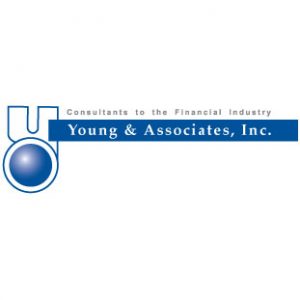Young & Associates provides banks and thrifts with support for their compliance programs, independent reviews, and in-bank training, as well as a full menu of management consulting, loan review, IT consulting, and policy systems.
BSA. Q: For resident and nonresident alien accounts, are we required to have a current, unexpired passport or alien identification card on file when opening a new account for such an existing customer?
A: This comes down to the bank’s customer identification policy (CIP) and how the bank handles expired identification. The BSA regulation carves out existing customers, provided that the bank has a reasonable belief that it knows the true identity of
the person.
The interagency BSA/AML Examination Manual provides more information on this issue, particularly in a section on risks associated with nonresident aliens and foreign individuals.
ECOA. Q: Regulation B states that for unsecured credit, a creditor may not inquire about an applicant’s marital status unless they reside in a community property state. However, most consumer loan applications have a section that asks for marital status with boxes for Married/Separated/Unmarried.
What is a bank to do with this data when an applicant fills in the appropriate box to their circumstance in an online application or via mail when they are applying for unsecured credit?
A: The bank should have procedures in place to address scenarios where applicants improperly provide marital status on applications they complete and submit to the bank.
Regulation B has this provision because the first two “prohibited bases” in the original ECOA and Regulation B were sex and marital status – because of discrimination against women. This prohibition is in there because marital status is irrelevant for individual, unsecured credit. For any other type of credit, the marital status might be relevant for some aspect of creditworthiness and/or access to collateral. The Official Staff Commentary states that it is permissible for the applicant to provide prohibited information so long as the lender does not use it when prohibited. One way to make it clear in a case such as this is to notate that the information was “completed by applicant” (or similar).
TILA. Q: We sometimes make loans with private mortgage insurance (PMI). This should be reflected on the Loan Estimate (LE) and Closing Disclosure (CD), right?
A: Yes. In the “Projected Payments” section on the first page, there is a line item for “Mortgage Insurance.” However, it will not be included with taxes and property insurance in the “Estimated Taxes, Insurance & Assessment” section on page one.
On the second page of both the LE and CD, PMI will appear section F, “Prepaids,” in the “Mortgage Insurance Premium” space for any PMI to be paid before the first scheduled payment. Also, on the second page, PMI will be shown in section G, “Initial Escrow Payment at Closing,” in the “Mortgage Insurance” space for any PMI that the consumer will be expected to place into a reserve or escrow account at consummation to be applied to recurring periodic charges. (Be sure that these amounts do not double-count any PMI premiums.)
FCRA. Q: I am currently performing an FCRA Audit, and our Commercial Department states we have verbiage on our personal financial statement (PFS) form about pulling credit. However, I notice that some of the PFS’s we acquire from other banks do not have this verbiage. I am trying to find guidance on whether we indeed need that for consumer loans made in the Commercial area. On the Retail side, we have the borrower sign the Borrower’s Authorization form for us to pull credit. Is permission required?
A: No, not for consumer (personal, household, or family) purpose loans. The FCRA does not require that a signature be obtained by the financial institution before obtaining the credit report. A lender may obtain a credit report when it intends to use the information in connection with a credit transaction involving the consumer on whom the information is to be furnished and involving the extension of credit to, or review or collection of an account of, the consumer.
However, the “permissible purpose” to pull a credit report in relation to a loan is only for consumer purpose credit. For business or agricultural purpose credit, the lender would indeed have to obtain permission from individuals involved in the transaction before pulling their credit reports.
Regulation D. Q: Is a for-profit LLC permitted to hold a negotiable order of withdrawal (NOW) account or money market deposit account (MMDA)?
A: No and yes. No, an LLC is a corporation, so a for-profit LLC is prohibited from holding a NOW account. However, there is no similar prohibition against a corporation holding an MMDA (or other savings deposit).
This treatment based in what seems like distant history, from back in the days of interest rate limits on savings deposits and a prohibition against paying interest on demand deposits. The NOW account was initially an experiment that was ultimately extended nationwide, but was limited to individuals, governmental units, non-profits, and a few other entities. For-profit corporations were prohibited from holding these savings accounts (depositories have to reserve the right to require advance notice of withdrawals) with unlimited transaction capabilities.
The Dodd-Frank Act (2010) rescinded the statutory prohibition against paying interest on demand deposit accounts (DDA) but left the NOW account provision in Regulation D untouched. Therefore, any entity may hold an interest-bearing DDA, while NOW account ownership remains limited.
MMDAs are a savings deposit that initially had transaction limitations, so a NOW-like restriction on ownership was never imposed on MMDAs. For-profit businesses are free to hold MMDAs, as well as other savings deposits.
MMDAs are a savings deposit that initially had transaction limitations, so a NOW-like restriction on ownership was never imposed on MMDAs. For-profit businesses are free to hold MMDAs, as well as other savings deposits.
TILA. Q: We are beginning to use a vendor to electronically file our mortgages/deeds of trust. Are we correct that the fee for this service is not an APR fee, and that it goes in Section B on the LE and CD?
A: You are half right. The vendor is a private company that provides the e-filing services, so their fee does not fit into the finance charge exclusion in Regulation Z for “security interest charges” (filing fees, in plain English) because it is not a fee “prescribed by law that actually are or will be paid to public officials” to file/perfect the security interest.
Therefore, their fee is an “APR fee,” one that is a finance charge – and likely a prepaid finance charge since it is presumably paid at settlement.
You are correct on where the fee should go. It belongs in section B since the bank is requiring this particular provider be used.
EFTA. Q: For EFT error resolutions, how many days after a customer notifies us of an error do we have to give provisional credit? Is that business days or actual days?
A: For an electronic fund transfer (EFT) “error,” provisional credit must be given if the bank will need more than 10 business days to investigate and resolve an alleged error. This gives the bank up to 45 calendar days to finish its investigation for many errors. The 10 business day time period is doubled if the “error” involves a new account (within 30 days after opening) and the 45 calendar day limit is doubled if the “error” involves a point-of-sale debit card transaction (because, no doubt, of the extra time needed when communicating with merchants and processors).
To take advantage of the 45 (or 90) calendar day extended time limit, the bank must provisionally credit the customer’s account with the amount of the alleged “error” by the 10th business day (or 20th business day for a new account).
BSA. Q: Is a beneficial ownership form required for a loan/account involving a trust?
A: It depends. The Certification of Beneficial Ownership form is required only for a statutory trust, not a garden variety trust. The Financial Crimes Enforcement Network (FinCEN) specified this distinction in its 2016 Frequently Asked Questions release on this rule. FinCEN clearly stated that only a statutory trust (one created by a filing with the state’s Secretary of State) would require the form.
TILA. Q: Would a late fee on a loan be considered a prepaid finance charge?
A: No, a fee triggered by a late payment is not a prepaid finance charge for two reasons: (1) a late payment fee is not a finance charge and (2) such a fee is not collected before or at closing (which is needed to be “prepaid” for Regulation Z purposes).
EFAA. Q: Can a hold be placed on a Cashier’s Check that is payable to a non-customer and signed by our customer, and deposited in our customer’s account, which does not have enough money in the account to cover the check?
A: Yes. Next-day availability for cashier’s checks is required only when the cashier’s check is deposited into an account of a payee named on the check, not into the account of a transferee/endorsee. The Official Staff Commentary on Regulation CC specifically provides that one statutory condition for next-day availability for these checks is “that the check must be ‘endorsed only by the person to whom it was issued.’”
So, a cashier’s check deposited into someone other than a payee’s account may be treated as just any other local check, including having holds placed on the availability of its funds.









